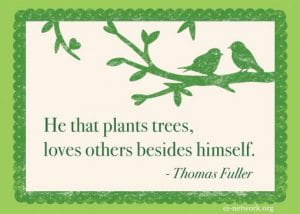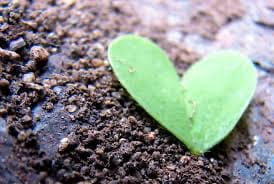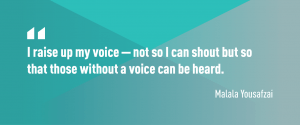The connections seen throughout the readings between the oppression of women and the oppression of nature, is activism due to the impacts of environmental degradation. This was exemplified in Kenya with the “Green Belt Movement”; In India with the women of “Chipko Movement”; as well as in Brazil, where notoriety via article with a boy swimming in a river of trash, meant for the NGO to take action. Or even here in the United States, where Native American women in South Dakota was jailed for trying to protect a pipeline that provides clean drinking water. These are a combination of some of the ways in which women, globally, speak up for the injustices due to environmental degradation. And in all of these instances women’s oppressions are similar because they are left fending for access to natural resources. Domination starts from the top of hierarchal system – governmental organizations, and in some cases, men from the communities do not defend the land because they only look at the economic gain, meanwhile women struggle to conserve natural resources. A woman’s view of nature is like her children, “when you plant a tree and you see it grow, something happens to you. You want to protect it and value it” (Maathai).
 In Kenya, environmental activists like Wangari Maathai heads-up movements like the “Green Belt Movement”, which fought against Parliament for the right to plant trees. The idea behind this movement was to take back the power that was replaced by “fear” in the people of Kenya. Trees symbolized the connection that women had to nature; in that the trees gave them everything they had, whether that was food, water, or just having an untouched place where people (not just women) can go for a breath of air (that is not polluted). Maathai wrote, “they needed clean drinking water, but the pesticides and herbicides used on farms to grow cash crops polluted the water…the women feel their families are now very weak and cannot resist diseases, that their bodies are impoverished because of an environment that is degraded”(Maathai). As I read on, I kept wondering how many women and children suffered by something that seems to be so fixable, especially since the scarcity of natural resources is not their fault to begin with. But this is not the case when we are talking about an institutionalized system that kept depleting them of such. And making matters worse, women were arrested and jailed in protestation of these basic necessities.
In Kenya, environmental activists like Wangari Maathai heads-up movements like the “Green Belt Movement”, which fought against Parliament for the right to plant trees. The idea behind this movement was to take back the power that was replaced by “fear” in the people of Kenya. Trees symbolized the connection that women had to nature; in that the trees gave them everything they had, whether that was food, water, or just having an untouched place where people (not just women) can go for a breath of air (that is not polluted). Maathai wrote, “they needed clean drinking water, but the pesticides and herbicides used on farms to grow cash crops polluted the water…the women feel their families are now very weak and cannot resist diseases, that their bodies are impoverished because of an environment that is degraded”(Maathai). As I read on, I kept wondering how many women and children suffered by something that seems to be so fixable, especially since the scarcity of natural resources is not their fault to begin with. But this is not the case when we are talking about an institutionalized system that kept depleting them of such. And making matters worse, women were arrested and jailed in protestation of these basic necessities.
Similar to Kenya, the degradation of land forced the women in India to build the “Chipko Movement” which was the hugging of trees to prevent them from being cut down. The article stated that “mainly village women, have successfully banned the felling of trees in a number of regions and influenced natural resource policy in India” (Chipko Article). The Chipko Movement is another heartbreakingly example because women it seems, are at the center of exploitation in less developed countries, where there is a need for more economic gain. Some countries appearing more urbanized and who have larger populations, can barely provide livable conditions for overpopulation. In our reading, this is seen not only in India but also places like Brazil, which have not found proper ways to get rid of waste, so rivers become dumping grounds. “According to government estimates, some 6,500 children live in the slums in the Arruda and Campina Barreto neighborhoods on Recife’s north side” (Talita Correa, Vice)
Why is this an issue that women globally should be concerned with? Because it affects all of us. From the beginning of time, women have been exploited; sex exchange for food or being in abusive relationships. A study put out by Sustainability Times shows “researchers examined data and case studies from more than 1,000 sources and documents on the links between environmental pressures and gender-based violence. When natural resources are limited, exploitative social behaviors such as sexual abuse can become more dominant, especially affecting girls and women” (Cross, Sustainability Times). Not just in less developed countries but globally, there is a lack of policies to protect women and children from environmental degradation. Maathai’s great example of this was the “wrong bus syndrome” – almost as saying, we have to take matters into our own hands by getting into the driver’s seat. We all have to learn how to save our environment – not just women but men also. In Maathai’s Greenbelt Movement, when women became empowered by the planting of trees, “the men joined in because they saw that the women were doing positive work”.
If the solution is advocacy, then we need to become aware of and, thereby educated about what we are advocating for. Out of the articles, Maathai said it best “blame is placed on the side that has power”, which is, blame can only go but so far, which I find is true in many circumstances. While it is good to know who caused these issues, it is equally important that we should be looking for ways to solve them, and this is where our connection to one another should grow – in movement. This action was also illustrated in the “Pipeline article” where a North Dakota activist name Prairie McLaughlin and other women stood up to protect the rights to clean drinking water. “Officers took her to a North Dakota jail…where, she says, a group of male and female guards forcibly removed her clothes when she refused to strip in front of them. But, when asked if she was prepared to keep defending the Standing Rock tribe’s water, McLaughlin’s face hardened. “Everyone needs to stand up,” she said” (The Guardian). Like Maathai, McLaughlin is the prime example of how women who stand up for what is right by protecting what we should all (men too) want to protect – the environment. Instead, they arrested and dehumanized by male dominated system.
I wonder if I have the strength to become a women’s advocate like Maathai, McLaughlin, or even the women in Chipko and Greenbelt movement? Saying I want to be is one thing, but doing the actual work is much harder as I’ve learned in this course and other WGS courses. I guess it depends on what I’m advocating for. According to Maathai, “fear is the biggest enemy you have. I think you can overcome your fear when you no longer see the consequences” (Maathai).
Annotated Bibliography
Cross, Daniel T, Environmental degradation ‘leads to gender-based exploitation’February 2, 2020
This article talked about the kinds of exploitation women face due to environmental degradation. It covered a study that showed how women compete for food and, how the lack of natural resources was used by a male dominated society to dehumanize them. In another study, researchers observed some illegal activities, like ‘sex-for-fish’, a practice due to the scarce resources from environmental degradation.




Hi Mary. What a great introduction to your blog. You make a solid connection to the oppression of women and nature and activism. Your comment in the first paragraphs that patriarchal systems, government and sometimes men in many cases obstructs activism. I agree and we have seen examples of this in the reading. From the oil workers in “man camps”, to the males in positions of power such as Sunderlal Bahuguna, the Prime Minister of India many men maintain patriarchal systems that degrade women and our ecosystem. I noticed the quote you provide in your second paragraph is from a male. I liked that! While there are many men that have patriarchal values and ideals it is possible to change those ideas through the activism from many ecofeminist. For example the women in Africa lead by Wangari Maathai involved in the Green Belt Movement were able to get the attention of government and men in their country because of the selfless efforts to propagate change. Through education, perseverance, and bravery they were able to get the attention of their government who was able to see the value in their efforts. I saw that you included that in your blog also. You make a great point about being educated about what we are advocating for so that we can initiate change. I think the point Ivone Gerbara makes is pretty relevant when it comes to activism. She states, “the challenging question for me is not the struggle among different ways of interpreting women’s lives and the ecosystem, or the reductionism of theories, but the destruction of life while we are discussing those theories. Her reasoning behind theories taking a backseat is that some discussions reinforce patriarchal ideas and capitalism rather than initiate change. Do you agree with this? I agree with this to some degree but found it hard to be able to decipher between what discussions might reinforce patriarchal ideas. Something I did consider was the subject of intersectionality and the ism’s. Do these ism’s reinforce that patriarchal hierarchy such as racism, ableism, classism, genderism? Some argue they do and I could see why.
I love the points you made about how certain women have found the strength to speak up, and the difference they’ve made for their communities/the world. As you self-reflected upon whether you had that strength, I feel the same. Womens’ studies classes have definitely inspired me to speak up more and become firm in my beliefs. I do think it’s amazing that women struggling are able to speak up for themselves and demand change, however I think that it is absurd that we as a society often expect them to / wait for them to. Women in situations where they are underprivileged/are experiencing abuse/going through any other form of oppression often are doing their very best just by surviving and getting through the day. We cannot say how their situations affect their mental health. Yes, women such as those who fronted the Chipko movement are amazing heroes. However, we need to stop pushing the narrative that every single women needs to be like that. We need to let people know that if they are literally just surviving a tough situation, they’re doing amazing. It’s the people with the privilege on the outside that we need to be putting the pressure on to stand up and make a change.
Have you ever considered about adding a little bit more than just your articles?
I mean, what you say is fundamental and everything. However just imagine if you added some great graphics
or videos to give your posts more, “pop”! Your content is excellent but with images and video
clips, this site could definitely be one of the greatest in its niche.
Awesome blog!
my page :: product review